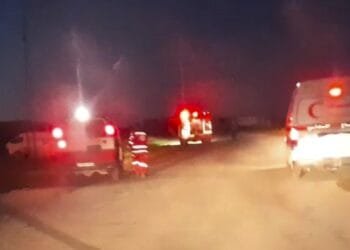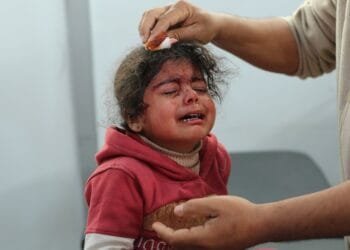Blasts on February 14 struck pipe supplying energy from country’s largest production field
Iran’s Oil Minister has accused Israeli saboteurs of blowing up one of the country’s main pipelines, a 1,200km cylinder that supplied homes and industry from the South Pars gasfield.
When two explosions hit the line last Wednesday, lighting up the night sky with columns of fire, officials said sabotage was the likely cause, without saying who might have been responsible.
But Javad Owji has now said “the explosion of the country’s gas lines was the work of Israel”, in televised remarks after a cabinet meeting.
No casualties were reported in the blasts, in Borujen in the south-western province of Chaharmahal and Bakhtiari, and Safashahr in Fars province, but officials said gas supplies had been disrupted in several areas.
Iran has often blamed Israel for various industrial sabotage operations and assassinations in recent years, mainly targeting weapons programmes, nuclear research facilities and engineers linked to those projects.
Israel never comments directly on whether it is involved in such acts but has indicated it may be behind operations in Iran.
In 2014, former defence minister Benny Gantz, now part of Israel’s war cabinet for the continuing Gaza conflict, said Israel had conducted “close-range operations and long-range ones – Iran, and so on”. He said these areas were not beyond the Israeli military’s reach.
Tehran and Israel, meanwhile, have traded a series of drone and sabotage attacks on each others’ ships, and Israel frequently bombs targets linked to Iran’s Islamic Revolutionary Guards Corps in Syria. But attacks on such critical infrastructure, carrying energy from the largest production field in the country with an estimated 18 trillion cubic feet of gas in reserves, are rare.
Alongside suspected Israeli saboteurs, or Israeli sympathisers acting as proxy agents in Iran, Tehran is also battling a number of insurgent and terrorist groups such as Kurdish separatists in the north and Baloch separatists in the south, as well as ISIS.









 United Arab Emirates Dirham Exchange Rate
United Arab Emirates Dirham Exchange Rate

